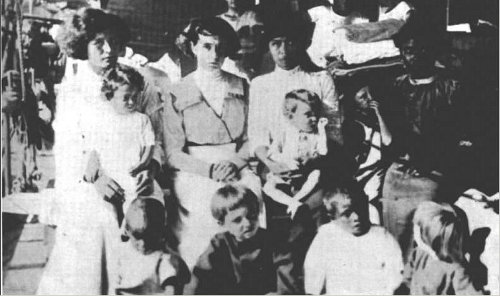
On July 18, 1917, the U.S. Navy gunboat Yorktown called at Clipperton Island, a tiny coral atoll in the eastern Pacific. The ship’s commander, Harlan Page Perrill, sent two men ashore and was surprised to see them return with a complement of women and children. When his men made their report, Perrill later wrote, they revealed “a tale of woe absolutely harrowing in its details.”
The three women and eight children were the only survivors of the island’s original colony, which had once numbered 100. The last ship had visited the island three years ago, and their supplies had given out six months after that. Since that time they had survived on fish, fowl, and eggs. Scurvy and starvation killed much of the population; others died at sea while attempting to escape in a whaleboat. By 1917 lighthouse keeper Victoriano Álvarez was the only man on the island; he declared himself king and began terrorizing the women, threatening, beating, and sadistically raping them, even killing two.
Álvarez had promised to kill Alicia Arnaud, the governor’s wife, when help finally arrived, to prevent her talking to the authorities, but an odd quirk saved her. That very morning, finally determined to act, she and fellow survivor Tirza Randon had confronted Álvarez in his hut, where Randon had killed him with a hammer. Only minutes later, Arnaud’s son had spotted the Yorktown. “What if we had been an hour earlier!” Perrill reflected. “It is almost certain that the man would have killed Señora Arnaud.”
Risking court-martial, Perrill left Álvarez’s body to be devoured by crabs and omitted any mention of him in his official report, and he and the entire crew of the Yorktown kept the secret for 17 years. He later explained that “I was afraid of the effects it might have upon the fortunes of Tirza Randon.” “Had Perrill not sanitized his reports and included titllating details of Álvarez’s reign of terror,” wrote Jimmy Skaggs in his history of the island, “the story undoubtedly would have received far greater attention.”
